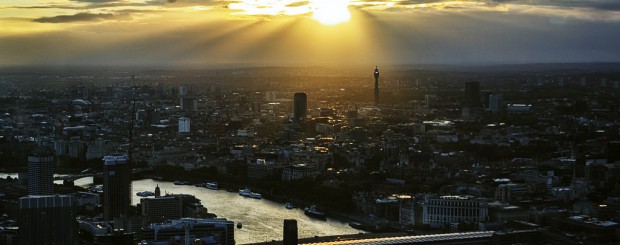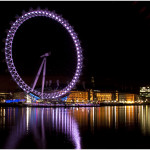Standard of Living in London
You’ve probably heard what an expensive city London is to be able to enjoy a decent standard of living in, and yes this is true – no-one is going to try and convince you that it’s cheap.
And when it comes to comparing the standard and cost of living in London to other cities of the world, can those working in the UK capital genuinely expect to have a good standard of living?
What can you expect if moving to London is on the cards? Are you going to have to downsize not to overstretch yourself? Or are you going to have to do without all those luxuries such as dining out, gym memberships (to work off those extra calories from dining out), or forgoing your daily cappuccino?
With all that in mind, let’s take a down-and-dirty look at the standard of living in London and what you can really expect.
Somewhere to Live
Whether you’re looking to purchase, rent, or perhaps share a room in a house, you’re going to need somewhere to live. London is a notorious area where prices are generally more expensive than other places in the world.
For example, according to Numbeo, renting a one-bedroom apartment in the city centre will set you back around £1,660 per month. You reduce this price to around £1,135 if you choose to live less centrally.
Purchasing a property comes in at around £17,000 per square metre in the centre, dropping to around half that further out. However, prices vary widely in different areas of London. London Property Watch provides up to the minute prices of both rentals and sales in all areas of London.
One way to bring down the cost of accommodation is to house share or rent a room. You can check out adverts from people all over the city on the websites Spare Room and Easy Room Mate.
Paying the Bills
It’s all very well finding an affordable place to live, but once there, you need to pay to run it. Utilities (heating, electricity, telephone, Internet, etc.) tend to be a little more expensive in London than in other capital cities of the world.
However, there are ways around this. The first is to ensure that you’re paying the lowest price for your gas and/or electricity. In the UK, energy suppliers are constantly adding and changing their tariffs to attract new customers, but they’re notorious for not passing these savings onto their existing ones…
In order to fight back, consumers have become clever. They simply swap around from provider to provider, taking the deals while they can and then changing to the next one once the deal runs out. The energy companies naturally don’t like it, but there isn’t a lot they can do.
And thanks to various free to use comparison websites such as U Switch and Compare The Market, it takes no time at all to find out if you’re getting the cheapest deal. If you’re not, then it’s time to change.
In addition, every time you take out a new deal, you should do so using a cash back website such as Top Cash Back. Such sites give the power of purchasing back to the consumer.
Basically, every time you become a new customer to virtually anyone through a third party, that third party earns a commission. What Top Cash Back does is give all that commission to you, and it can amount into hundreds of pounds every year.
Getting Around
One great saving that you can make in London is that it really isn’t necessary to own a car (and we all know how expensive they are to run. There’s a saying, “spare money is what you have just before your car breaks down…”).
Thanks to the excellent public transport system of underground trains and overground trains and buses in London, the need to own a car is literally obsolete. And yes, using public transport is expensive (a monthly pass is currently 130 per month as of November 2015), but this is still far cheaper than running a car.
And never forget what a great walking city London is. Not only do you get to save money travelling this way, but it’s great exercise too, and you get to walk past iconic historical buildings that date back centuries.
There aren’t very many cities in the world that can offer that.
Another cheap way of getting around is to use the Boris Bikes (OK, they’re really called Santander Cycles, but Boris Bikes sounds so much better – and reminds us of the eccentric Mayor of London, Boris Johnson, who introduced them).
These can be rented for as little as 2, and picked up and returned to multiple different points in the city.
Food
Both grocery shopping and eating out can be expensive in London if you don’t know how to make it less so.
So called ‘cheap’ supermarkets such as Lidl and Aldi have snowballed over the past few years. People have realised what excellent value for money they represent – so much so they’ve forced the big names such as Tesco and Sainsbury’s to lower prices to re-capture their share of the market.
The savvy shopper will purchase in multiple different places to ensure the best deals and keep the cost of living down.
Eating out can be dear, but there are ways around this. The Times newspaper offers a dining card that provides excellent value for money in some of the best restaurants in town. You should also check out websites such as Voucher Codes and Groupon for deals.
In Conclusion
Yes, London is expensive, but in general average salaries are also a bit higher than elsewhere to help offset this. By being savvy shoppers and following some or all of the above tips, people living in London manage to reduce their bills substantially.
Thanks to this, it really is possible to maintain a decent standard of living in the UK capital city. Sure, you might have to forgo the big garden you’re used to back at home (such a luxury in London will cost a fortune), but you exchange that for other benefits.
Living in London is expensive, as we’ve already said, but it is possible. Millions of people doing so every day are true proof of that.








